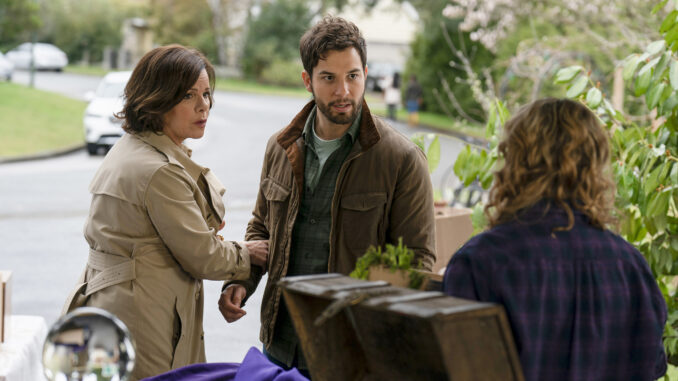
Escaping the Gaze: Why "So Help Me Todd" Ending Was a Blessing in Disguise
The fluorescent lights hummed a familiar dirge above the set of "So Help Me Todd," a sound that, after two seasons, felt as comfortable as an old shoe. For many of the cast and crew, the news of its cancellation hit like a sudden storm, a squall of disappointment washing away hopes for future seasons and secure employment. But for me, one of the supporting players, a quiet sigh of relief mingled with the prevailing sadness. It wasn't that I didn't appreciate the show or the people I worked with; it was that the unexpected end delivered me from a creeping anxiety, a constant dread that I would be “canceled.”
The term "canceled" has become a cultural shorthand for a swift and unforgiving public shaming, often resulting in the loss of career opportunities and social standing. It’s a fear that hangs heavy in the air for many public figures, a Damoclean sword suspended by the fragile thread of public opinion. In my case, the worry wasn’t born from any deeply held scandalous secret. Instead, it stemmed from the insidious nature of the internet, its capacity for misinterpretation, and the potential for even the most innocuous actions to be twisted and weaponized.
I had witnessed it happen to others. A seemingly harmless tweet taken out of context, an off-the-cuff remark during an interview, a resurfaced photo from years past – any of these could be fuel for the digital pyre. The internet's long memory became a source of paranoia, every post, every interaction scrutinized in the back of my mind. I found myself censoring myself, not just in interviews, but in my personal life as well. Social media, once a platform for connection, became a minefield, each like and comment a potential landmine.
The fear of being canceled wasn't just about the potential loss of my role on "So Help Me Todd." It was about the potential erosion of my identity, the forced reduction of my complex humanity into a single, often distorted, narrative. It was about the fear of becoming a public spectacle, judged and condemned based on incomplete information and amplified by the relentless echo chamber of the internet.
This fear manifested in subtle ways. I avoided controversial topics during interviews, sticking to safe, pre-approved answers. I hesitated to express strong opinions, even on social media, fearing that they might be misinterpreted or used against me. I even started second-guessing my fashion choices, worried that something I wore might be deemed inappropriate or offensive by some self-appointed arbiter of good taste.
As "So Help Me Todd" gained popularity, so did my anxieties. With increased visibility came increased scrutiny. The comments sections on online articles about the show became a breeding ground for criticism, often veering into personal attacks. While I tried to ignore them, the negativity seeped in, reinforcing my fears and fueling my paranoia.
The cancellation, therefore, was bittersweet. Of course, I lamented the loss of a steady job and the camaraderie of the cast and crew. But the quiet relief that accompanied the disappointment was undeniable. The impending doom of potential cancellation, the constant self-censorship, the exhausting effort to maintain a perfect public persona – all of that evaporated. I was free from the constant gaze, free to be myself, flaws and all.
The experience served as a stark reminder of the pressures faced by those in the public eye, the constant vigilance required to navigate the precarious landscape of modern celebrity. It also highlighted the importance of empathy and understanding, the need to remember that behind every online persona lies a complex individual, vulnerable to mistakes and deserving of compassion.
Ultimately, the premature end of "So Help Me Todd" offered me a chance to step back, reassess my priorities, and reclaim my authenticity. It was a reminder that true freedom lies not in the pursuit of public approval, but in the courage to be yourself, regardless of the consequences. And in a world obsessed with judgment and cancellation, that’s a lesson worth learning, even if it comes in the unexpected form of a show's untimely demise. The fluorescent lights may be dimmed, but my internal ones are shining brighter than ever.
